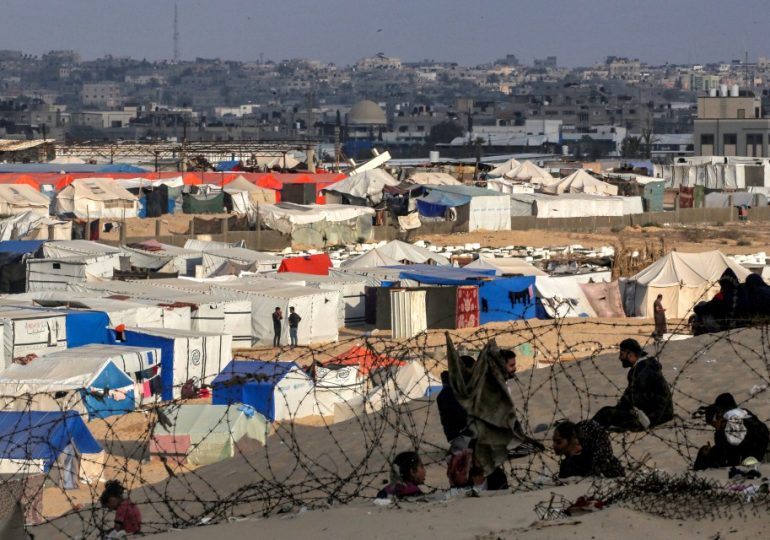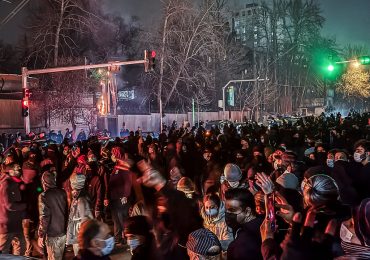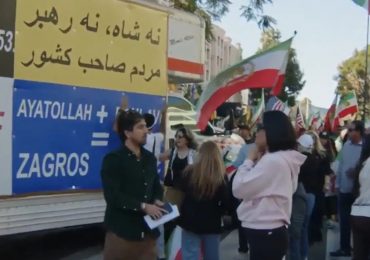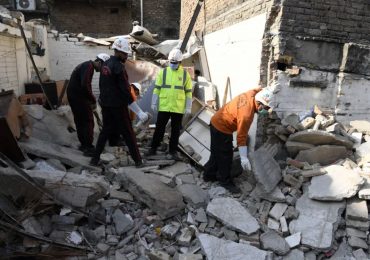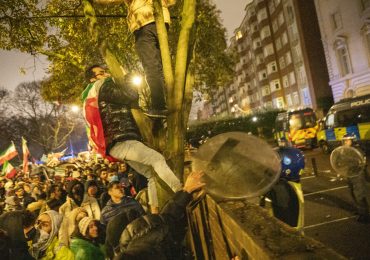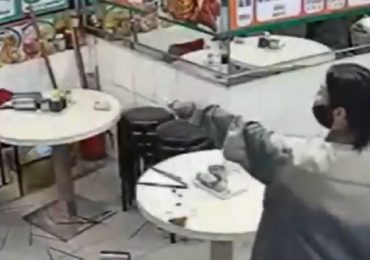ISRAEL will strike five sprawling Hamas tunnel bases in Rafah where terror chief Yahya Sinwar and his ruthless followers could be hiding.
The country’s tanks and troops are reportedly lined up on the Gaza border and waiting for the green light to begin the ground offensive.
AFPTents at a camp house displaced Palestinians in Rafah in the southern Gaza Strip[/caption]
RexIsraeli troops conduct a military operation in the central Gaza Strip[/caption]
RexPalestinians search for bodies and survivors in the rubble of a destroyed house following an Israeli air strike[/caption]
APIsraeli PM Benjamin Netanyahu said Israel will storm Rafah ‘with or without’ a truce deal[/caption]
There are five areas in the war-torn city where Israel believes Hamas has tunnels and hideouts, and where Sinwar is said to be hiding and using Israeli hostages as human shields.
Israel has finalised plans to assault the city and will encircle Rafah with a ring of steel to prevent “military age” men from fleeing, said a senior western official familiar with Israel’s military plans.
A system of checkpoints will allow women and children to leave Rafah ahead of the invasion, but Palestinian men will be likely remain trapped in the city, the official told Middle East Eye.
He said: “They (the Israelis) have set up or are setting up sophisticated checkpoints… They allow women and children to move, but fighting aged males are another thing.”
Some 1.5 million people civilians have sought refuge in Rafah having fled from cities, refugee camps, and villages further north.
Israel’s planned ground offensive in the already-battered Gaza city is “on the immediate horizon” according to the UN’s aid chief.
PLANS TO INVADE
Israel’s tactical plans were reportedly finalised in recent days and are said to involve a phased invasion that can be paused or delayed if hostage talks require it.
There are five areas in Rafah where Israeli intelligence officials believe Hamas has tunnels and hideouts, a senior Egyptian official told NPR.
At least large tent encampments have been constructed north of Rafah in the past month, reportedly to house Palestinians relocated from the city ahead of the assault.
Satellite images showed rows of white tents at a site to the west of Khan Younis, a city about five kilometres from Rafah.
Israel’s Defence Ministry purchased 40,000 tents, each with the capacity for 10 to 12 people, a defence official told Reuters.
Egypt was said to have formulated a plan to begin on Tuesday that would see the vacations of medical staff cancelled and hospitals in the Sinai and Egyptian canal districts – near Rafah – ordered to transfer all surgeries to other districts.
The UK and the US are pushing to avert a Rafah offensive which Palestinian President Mahmoud Abbas has said would be “the biggest catastrophe in the Palestinian people’s history“.
Former US military adviser Abbas Dahouk condemned the alleged plans to erect a ring of checkpoints around Rafah, stating: “Israel considers every male a Hamas fighter until proven otherwise.
“It’s not a sound move. Cordoning Rafah is a daunting task and good luck separating fathers and sons from their families.”
Israel Defence Forces Chief of Staff Lt Gen Herzi Halevi has already approved the military’s final plans for action in Rafah, as well as plans to evacuated civilians, according to Israeli media outlet Ynet.
Invasion was said to be possible within 72 hours.
THE TRUCE DEAL
Hamas is considering a proposed agreement that would have the group free 33 hostages in exchange for a pause in fighting.
About 130 of a total 253 hostages dragged to Gaza last year remain in the besieged enclave, 34 of whom have now been confirmed dead by Israeli officials.
Prime Minister Benjamin Netanyahu believes the “last bastion” of Hamas is hunkered down in Rafah, and that sending troops into the “final terrorist holdout” is necessary to Israel winning the seven-month-old war.
He said yesterday that Israel will storm Rafah “with or without” a truce-for-hostages deal.
US Secretary of State Antony Blinken described the offer as “extraordinarily generous”.
He said on Monday: “In this moment the only thing standing between the people of Gaza and a ceasefire is Hamas.
“They (Hamas) have to decide and they have to decide quickly.
“I’m hopeful that they will make the right decision.”
Under the proposal, Israel would free thousands of Palestinians from its jails in exchange for up to 33 hostages during a 40-day ceasefire.
Hamas has previously called for a permanent ceasefire, the withdrawal of Israeli troops from Gaza, and the return of displaced Palestinians to their homes.
But Netanyahu is determined to wipe out Hamas, stating in December: “We’re continuing the war to the end.
“It will continue until Hamas is destroyed – until victory… until all the goals we set are met: destroying Hamas, releasing our hostages and removing the threat from Gaza.
“Anyone who thinks we’ll stop is unmoored from reality… We’re raining fire on Hamas, hellfire. All Hamas terrorists, from first to last, face death. They have two options only: surrender or die.”
Why does Israel want to invade Rafah?
ISRAEL’S military is reportedly poised and ready to invade Rafah, whether or not it reaches a peace agreement with militant group Hamas.
So why does Israel want to storm the southern Gaza city?
Israel says Rafah is Hamas’ last major stronghold in the Gaza Strip, as its military claims to have already dismantled 18 of Hamas’ 24 battalions.
Israeli Prime Minister Benjamin Netanyahu said: “We will enter Rafah because we have no other choice.
“We will destroy the Hamas battalions there, we will complete all the objectives of the war, including the return of all our hostages.”
The country believes Hamas has five battalions in Rafah and that its ground forces must move in to destroy them.
Hamas boss Yahya Sinwar is thought by the Israel Defence Forces to be holed up in tunnels beneath the city.
About 1.5 million Palestinians – more than half of Gaza’s population – have sought refuge in Rafah, having fled from cities, refugee camps, and villages further north.
Israel has said it will evacuate civilians from the city before invading.
Its military claims to have purchased 40,000 tents, each with the capacity for 10 to 12 people, to house Palestinians relocated from the city ahead of the assault.
APRows of tents have been built near Rafah in Gaza[/caption]
ReutersA man, identified as Omri Miran, speaks in a video released by Hamas on April 27[/caption]
GettyThousands of Palestinians gather to cross to the northern Gaza Strip[/caption]
AFPIsraeli soldiers gesture from a military vehicle along the border with Palestinian territory[/caption]
EPASmoke rises as a result of an Israeli airstrike in the northern part of the Gaza Strip[/caption]
Leave a comment
